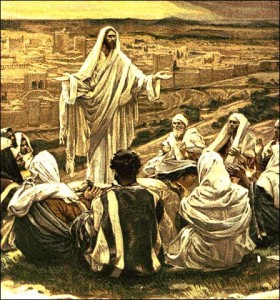 We are continuing our section by section look at the “Lord/Disciples’ Prayer” through the lens of Kingdom Theology. If you are just now joining us, you can find the intro and first section here.
We are continuing our section by section look at the “Lord/Disciples’ Prayer” through the lens of Kingdom Theology. If you are just now joining us, you can find the intro and first section here.
Our father in heaven,
May your name be honored,
May your kingdom come,
May your will be done
As in heaven, so on earth.
Give us today the bread we need now;
And forgive us the things we own,
As we too have forgiven what was owned to us.
Don’t bring us into the great trial,
But rescue us from evil.
-Matthew 6:9-13, The Kingdom New Testament
Now on to the next two sections in the prayer:
“May your kingdom come, May your will be done, As in heaven, so on earth.”
This is probably the most obvious end-time portion of the prayer as Jesus is telling his disciples to actively ask for the rule and reign of God to come down from heaven and invade earth. It is well to note that the rule and reign of God includes all areas of life – not just one’s spiritual life or well being. As such in praying this prayer, we are inviting God to enter into every area of our lives. This is not a prayer that we should be saying flippantly! This is an end-time, world changing; hold the boat, the world is going to collapse prayer that should give us chills every time we say it!
“Give us today the bread we need now”
While the previous line was the most obvious, this line is most likely the most cryptic in the prayer. Most modern English translations, like the Kingdom New Testament quoted above, translate the Koine Greek words to reflex a material request for bread. For example, the New International Version says “give us today our daily bread” while the English Standard Version says “give us this day our daily bread.” Sadly, while technically correct, these translations fail to convey the message that Jesus was trying to get across.
 To help with understanding this line, let us imagine ourselves in 1st century Palestine. Each year we would join our families in celebrating the deliverance of our people out of Egypt by the hand of God. This Passover celebration would include a feast and the breaking of bread that reminded us of the manna God gave to our forefathers in the desert. And while we ate this bread, we would remember that one day in the future God would deliver us once again from our enemies and we would sit at his banqueting table and feast on the bread of the new age. This coming wedding defined our future as 1st century Jews just as much as the Passover and the exodus out of Egypt defined our past.
To help with understanding this line, let us imagine ourselves in 1st century Palestine. Each year we would join our families in celebrating the deliverance of our people out of Egypt by the hand of God. This Passover celebration would include a feast and the breaking of bread that reminded us of the manna God gave to our forefathers in the desert. And while we ate this bread, we would remember that one day in the future God would deliver us once again from our enemies and we would sit at his banqueting table and feast on the bread of the new age. This coming wedding defined our future as 1st century Jews just as much as the Passover and the exodus out of Egypt defined our past.
Using these glasses and knowing the central message of Jesus was that the Day of the Lord had come, let us re-read this line of the prayer: “Give us, O’ Lord, today the bread of tomorrow.” Let us partake of the bread of the wedding feast just like our ancestors eat the bread of heaven in the desert. Let us celebrate and eat today, the feast that is to come in the new age when the Kingdom of God comes among us.
Do you see the radical shift in this line?
It is not about making sure we have physical food to eat, thou God does care about that. Instead it is an end-time petition for the wedding feast of the Lamb that fits perfectly within the overarching end-time message of the Lord/Disciples’ Prayer as well as within the greater context of the message of Jesus the King.
More to come…
